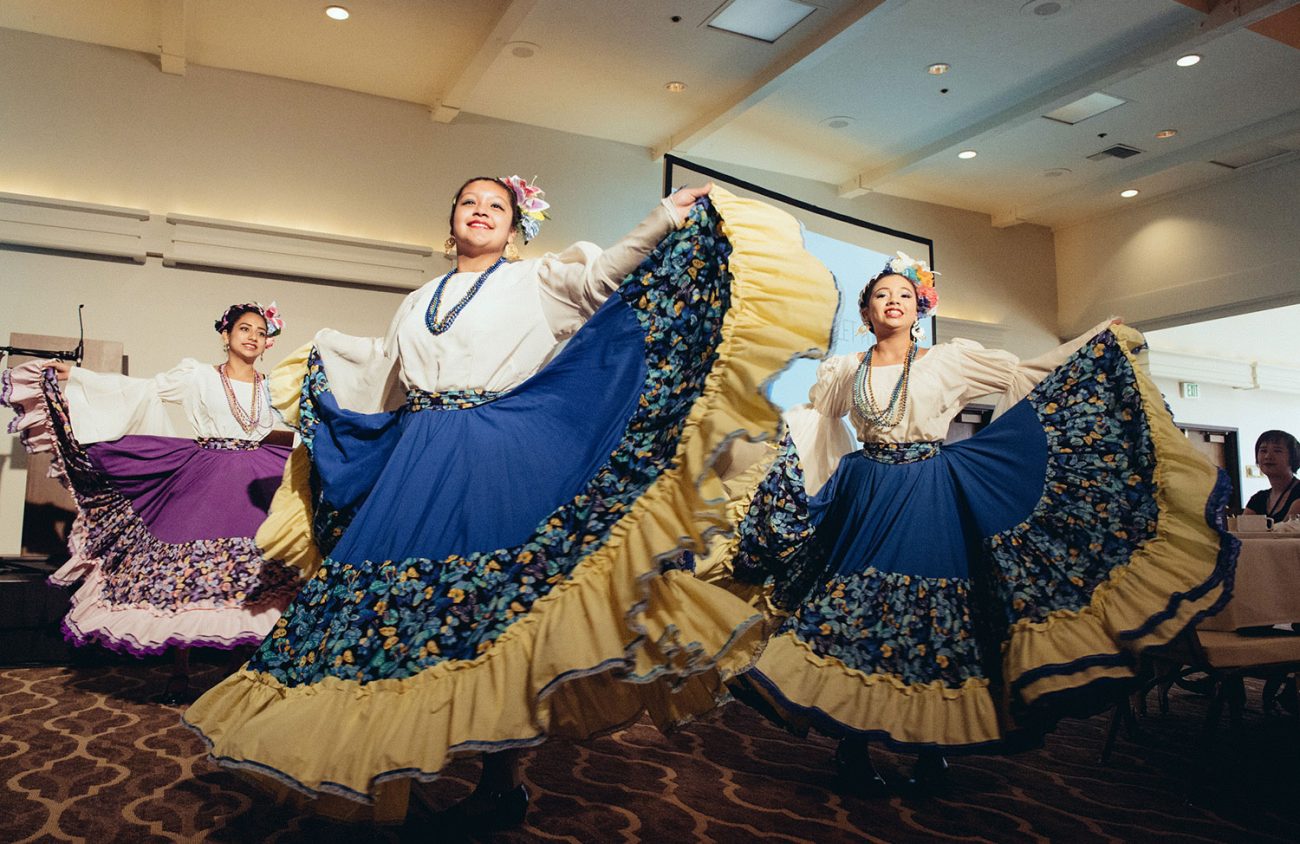In the final days of the holiday season, the best gift may not be a present that ends up under your tree. If you have given money to certain cultural nonprofits in 2018, you still have time to give to the Oregon Cultural Trust — and it may not cost you a dime.
The trust is a nonprofit founded in 2001 to support culture in Oregon. The money it receives helps more than 1,400 organizations in the state, including such diverse local groups as the Eugene Public Library Foundation, KLCC radio and Rose Children’s Theatre.
What makes the trust unique is it allows people who support the arts to divert their Oregon income taxes to fund cultural organizations. Unfortunately, not many people take advantage of this opportunity.
“I think of it as voting with your dollars,” says Jen Bell, head of marketing for the trust. “You’re saying: I would rather this money go towards arts in my state than just into the general fund.”
You can, without cost, donate to the trust up to the total amount you have already given to approved cultural nonprofits in Oregon. Up to $500 of that donation will be returned to you as a tax credit.
Let’s say you donate $500 to the Eugene Public Library Foundation. Then, you give a matching amount of $500 to the trust.
When you file your Oregon income taxes next year you can receive a $500 tax credit for that donation to the trust. That means you’ll have the $500 added to your refund or taken off the amount you owe. In the end, you’ll have paid $500 to make a $1,000-dollar impact on culture in Oregon.
Donations made to the trust are placed into its general fund, which offers three different grant programs. One is a Cultural Partner Grant, which goes to five overarching statewide organizations such as the Oregon Historical Society. The second is a Cultural Development Grant, which is application-based, and last is the County Coalition Grant, which provides each county with funds to distribute to various cultural entities.
Perhaps because of its slight complexity, about 95 percent of eligible taxpayers do not take advantage of the tax credit, Bell says. Of 250,000 taxpayers who made donations to qualifying nonprofits, only 9,000 people make the matching — and cost-free — donation to the trust to receive the credit.
A big reason that people don’t take the opportunity for the tax credit, Bell says, is because they do not understand the difference between tax credits and tax deductions.
Unlike a tax deduction, which simply reduces your taxable income, a tax credit reduces your tax bill. If you owed $300 in state taxes and received a $200 tax credit by donating $200 to the trust, you would only owe $100.
Another reason that few people have used the tax credit, Bell says, is because of the goal of past marketing campaigns.
“They had advertising that focused on culture and the diversity and beauty of culture in Oregon rather than talking about the tax credit,” she says.
Brian Rogers, executive director of the Oregon Cultural Trust, says the traditional marketing campaign had a hard time getting the word out. Last year, the trust shifted its marketing to provide a clearer explanation of the tax credit.
The result is that donors to the trust have increased by 55 percent, the biggest increase they have ever encountered, Rogers says. Donors gave 6.7 percent more in total donations, leading to a record $4.9 million for the trust.
The increased donations to the trust means more money for culture in Lane County. In 2018, Lane County arts and cultural organizations received $41,082. This amount has increased each year from $37,490 in 2015.
Overall, 1,180 people in Lane County made donations in 2018 to the approved cultural nonprofits. Rogers believes this model of raising small funds from a large number of people works, because people like to participate in these opportunities.
“The return is really high,” Rogers says. “Other states don’t really have this.”
How to get your Tax Credit
Add up your donations made in 2018 to Oregon cultural nonprofits. A list of qualifying organizations can be found at culturaltrust.org/get-involved under “find a nonprofit.”
Donate a matching amount to the Oregon Cultural Trust by Dec. 31.
You can claim the entire donation to the trust — up to $500 — as a tax credit on your Oregon income tax return. That amount will be taken off your state income tax bill or added to your refund.
